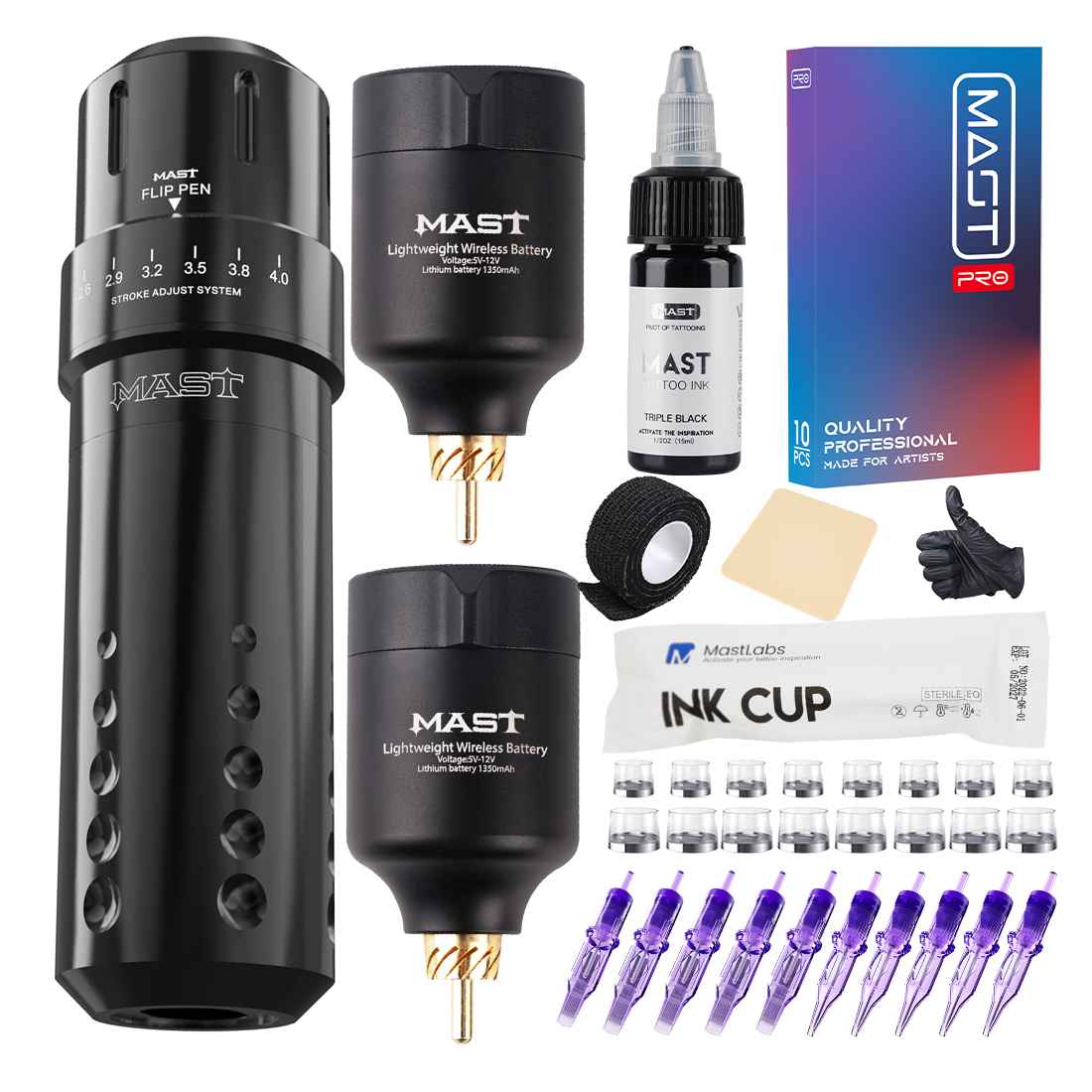Imagine this: a dedicated social worker, sleeves rolled up, revealing a tapestry of meaningful tattoos beneath. Are body art and professional helping hands a harmonious mix?
While perceptions shift, the question “Can a social worker have tattoos?” remains relevant. The straight up answer is, yes, a social worker can have tattoos.
Social workers with tattoos confront assumptions that professionalism requires conservatism. But most agencies now allow discretionary body art within policy limits as attitudes shift.
Proving capabilities and using sound judgment remain priority. With care around presentation and diverse clientele, today’s inked social workers succeed by focusing on performance over antiquated expectations.
Join us as we explore differing perspectives, delve into ethical considerations, and uncover the evolving landscape of tattoos in the field of social work.
Overview of Social Worker Tattoos
– No laws prohibit licensed social workers from having visible tattoos or piercings while practicing.
– Major social work organizations do not dictate personal appearance standards. Agencies craft own policies.
– Heavily tattooed practitioners confront bias appearing unprofessional, risky or lacking client best interests.
– Facial, neck and hand tattoos elicit the strongest stigma. Potentially offensive themes also raise wariness.
– Discretion advised on size and content for home visits and interviews. Conservative covering expected.
– Ultimately, most respect skill. Proven capabilities and communication overcome outdated judgement.
With dedication and empathy, inked social workers prove their merit and judgment aiding vulnerable clients.
Also Read: Can Accountants Have Tattoos? Cash Meets Ink
Are Tattoos Allowed in Social Work School?
– No accredited social work programs expressly prohibit students from having visible tattoos or piercings on campus.
– Occasionally professors demonstrate personal prejudices against tattooed pupils during group assignments, simulations and professionalism panels.
– Strong grades, fieldwork and communication eclipse any stigma. Focus on skill development.
– More progressive urban programs embrace student self-expression aligned with local cultures.
– Avoid potentially offensive themes faculty could perceive as undermining worker judgment.
Tattoos present no inherent obstacles to pursuing social work higher education. Proving one’s capabilities remains priority.
Licensure Policies for Tattooed Social Workers
Importantly, tattoos should not impede social workers from securing needed credentials:
– No state social work licensing boards prohibit visible tattoos or piercings among credentialed, practicing social workers.
– The National Association of Social Workers Code of Ethics does not dictate member appearance.
– The Association of Social Work Boards has no enforceable personal presentation restrictions affecting licensure.
– Tattoos are irrelevant to completing MSW clinical field hours needed for licensure.
– Body art does not jeopardize sitting for the Masters in Social Work licensure exam.
Tattoos in no way preclude the licenses required for professional social work practice. Focus on clearing all other requirements.
Also Read: Can a Pilot Have Tattoos? Exploring Ink in the Cockpit
Agency Policies on Social Worker Tattoos
While licensure is attainable, individual agency cultures vary:
– Most providers allow tattoos covered by standard professional attire. Highly visible pieces raise concerns.
– Staff engaging vulnerable populations like children, religious communities and seniors confront more conservative restrictions on expression.
– Urban community programs often permit discretionary body art aligned with local cultures.
– Heavily tattooed hands, fingers, necks and faces still elicit pushback across many providers.
– Presentation remains more formal for home visits, court appearances and outreach than everyday office work. Covering often expected.
Vet workplace culture fit if expressing yourself through prominent tattoos. Some environments impose limitations based on traditional regional or client norms. However, blanket bans are increasingly rare as younger diverse generations update standards.
Client Perceptions of Tattooed Social Workers
Views on tattooed human service professionals vary significantly across demographics served:
– Elderly, deeply religious and sheltered groups tend to demonstrate the strongest bias against social workers with conspicuous tattoos.
– Most adults are indifferent provided appropriate discretion around themes and coverage in home settings.
– Some demographics appreciate tattoos signaling shared backgrounds and interests, improving rapport.
– Overall, capabilities demonstrated through sound counseling and care outweigh appearance biases.
With utmost cultural competency, clinical skills trump outdated visual judgements. However, some populations remain wary of heavily inked practitioners. Tread respectfully.
Also Read: Can Lawyers Have Tattoos Without Ruining Their Careers? Everything You Need to Know
Best Practices for Social Workers with Tattoos
To excel in human services as a visibly tattooed provider:
– Keep themes positive, innocuous and free of potentially offensive imagery. Avoid known triggers.
– Prioritize discreet placement on upper arms, shoulders, backs and torsos. Sleeves allow easy, appropriate covering when beneficial.
– For home visits, cover bold tattoos and piercings with formal professional attire. Take a conservative initial approach.
– Keep presentation focused on social work qualifications and empathy, not personal style. Redirect attention as needed.
– Emphasize professionalism through strong communication, cultural competency, organization and clinical skill.
– Build rapport based on client needs and attentive listening, not appearances. Identify motivations and find common ground.
– Once established, thoughtfully begin leveraging earned reputation to introduce appropriate self-expression that challenges biases safely.
A gradual, responsible approach allows clinical excellence to eclipse outdated appearance critiques.
Hand, Face and Neck Tattoos for Social Workers
Tattoos on highly visible areas warrant extra care when serving clients:
– Most agencies prohibit hand, face and neck tattoos when meeting populations expecting traditionally professional appearance.
– Permanent or removable cover-up makeup offer options for temporarily masking hand and finger tattoos if required.
– Small, inoffensive hand tattoos may meet acceptance depending on regional norms. Location matters.
– Avoid facial tattoos early in your career when building clinical experience with different groups. Add later once established.
– Heavily tattooed providers still exercise discretion when interacting face-to-face with unaccustomed clients. Read the room.
Ink-friendly environments grow increasingly common, but human service workers balance personal expression with client sensitivities.
Also Read: Can Psychologists Have Tattoos? A Thorough Analysis
Discrimination Protections for Tattooed Social Workers
Legal considerations regarding social worker tattoos:
– No state boards prohibit visible tattoos or restrict agency policies on worker expression.
– The Americans with Disabilities Act offers no protections for employees with only tattoos unrelated to protected disabilities.
– Without union contracts, private agencies can dismiss noncompliant expression legally under at-will employment precedent.
– Gender, racial, religious tattoos warrant defense against targeted discrimination.
– Employers must reasonably accommodate tattoo coverings related to protected classes.
However, agencies maintain discretion legally to restrict tattoos as part of basic personnel grooming policies applied consistently. Carefully vet policy details when job hunting to ensure environment fits values. Consult attorneys if experiencing unlawful discrimination, documenting thoroughly. Seek out unbiased opportunity.
Building an Inclusive Agency Culture
Industry leaders can champion progressive environments:
– Updating hiring practices to focus on clinical merits over appearance preferences.
– Revising codes of conduct to allow appropriate self-expression aligned with capabilities.
– Improving unconscious biases against populations stereotyped as tattooed through dialogue and training.
– Equally supporting diverse staff across the spectrum. Addressing experiences of discrimination.
– Assessing changing regional views annually to reevaluate tattoo policy necessity.
– Highlighting team humanity, interests and passions beyond the workplace alone.
Inclusive policies that empower qualified professionals excel over conformity-centric agendas.
Advice for Aspiring Tattooed Social Workers
Dedicated human service professionals can still prosper:
– Limiting tattoos early in careers or at conservative agencies. Build clinical reputation beforehand.
– Mastering a wardrobe that covers tattoos for home visits or meetings. Exercise situational discretion.
– Researching local agency cultures when job hunting to target welcoming environments.
– Joining associations promoting updated industry norms on appropriate self-expression.
– Speaking against outdated biases through college groups and community platforms.
– Making connections based on cultural competency and individualized care over appearances.
– Knowing legal protections against unlawful discrimination. Seek counsel if targeted.
With compassion and wisdom, the next generation of social workers brings positive changes focused on empowerment and ability over conformity.
Conclusion
We’ve been on the question, “Can a social worker have tattoos?” We’ve seen that while the social work world retains traditional vestiges, its new tattooed workforce is steadily reshaping norms by demonstrating excellence.
By showcasing their clinical skills and judgment first, talented human service professionals overcome outdated biases.
Leaders must evolve to support employee diversity, retain top talent and provide cultural competence training attuned to shifting regional views.
With care and vision, inked social workers will continue redefining the field to emphasize professionalism of practice over conformity of appearance.
FAQs on Can a Social Worker Have Tattoos
Should social workers cover tattoos visiting conservative clients?
Using discretion remains advisable currently. But focus rapport on your care and capabilities first. With quality work, tattoos often become forgettable. Assess client culture and comfort.
Do clients trust social workers with visible tattoos less?
Potentially initially but clinical expertise overcomes assumptions through time. Take opportunities to display sound judgment and kindness. Highlight shared goals beyond appearances.
Can social service agencies prohibit staff visible tattoos and piercings?
Legally yes, but such restrictive policies deter top talent. Leaders reforming codes to support free expression and inclusion recruit excellently.
Is having a nose stud taboo for social workers?
Often yes, facial piercings face high stigma interacting with clients currently. Tattoos gain more progressive acceptance than piercings under shifting norms. Changes remain gradual.
Should social workers avoid political or activist tattoos?
They risk alienating certain client groups currently, yes. Even well-intended body art may impose beliefs uncomfortably. Keep counseling ideology-neutral and focused on care.
Do urban social workers display tattoos more freely than suburban ones?
Frequently yes, urban providers aligned with diverse local cultures tend to celebrate professional self-expression more freely. Location and clients served impact norms.
Can agencies restrict social worker tattoos and piercings?
Yes legally per at-will precedent. But forbidding all body art hinders recruitment of top talent. Savvy leaders instead implement codes focused on capabilities not conformity.
Do younger social workers have more tattoos than older MSW graduates?
Yes, under 35 human service pros average 5-10 times more tattoos than over 50 peers. But older graduates increasingly get inked too as views progress.
Should social workers explain their tattoos to clients if asked?
Briefly if appropriate, but avoid imposing personal views. Refocus on client needs and building trust through care. Remain conscious of power dynamics.
Can finger tattoos undermine a social worker’s credibility?
Small, inoffensive designs unlikely undermine competency alone. But prominent hand tattoos risk appearing unprofessional currently. Discretion advised until views progress.






